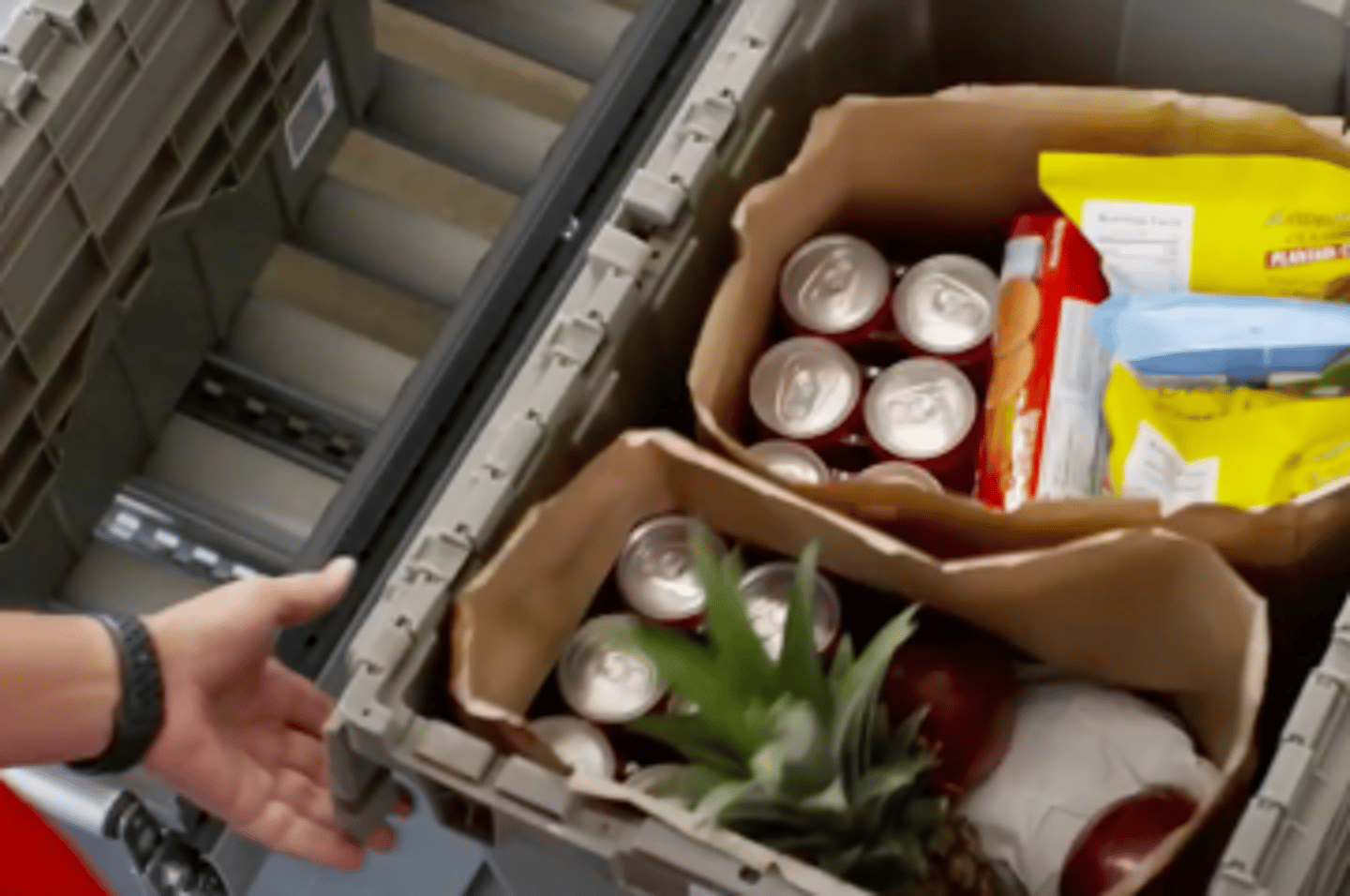How Loblaw responded to COVID-driven online demand
In the chaotic early days of the coronavirus pandemic, online grocery shopping exploded and grocery retailers had to move quickly to expand and improve their offerings.
Part of Loblaw’s response included the accelerated opening of a new micro fulfillment centre (MFC) in Toronto that uses an automated system to pick and pack grocery orders for its PC Express system.
READ: Grocery industry continues to grapple with COVID-19 delivery demand
“With this launch, PC Express has been able to open up additional availability for orders, by increasing the pick rate to 500+
Loblaw worked with the American company Takeoff Technologies to build the MFC using part of a Real Canadian Superstore in north-west Toronto (Dufferin and Steeles).
“The technology at this automated picking facility has the capacity to support order volume for multiple PC Express locations,” said Lansing.
READ: Voilà by Sobeys launches in Vaughan, Ont.
While competitor Sobeys recently built a 250,000-sq.-ft. distribution warehouse in Vaughan, Ont. for its new automated delivery system Voilà (with a similar warehouse planned f0r Quebec), Loblaw appears to be focused on this scaled down version of robot-enhanced order fulfillment. Takeoff’s system—which uses robots to pull from stacks of products and delivers them to an employee for packing—uses a small part of existing store space.
Loblaw declined to say how many other MFCs were in the works, but Lansing did say, “this type of fulfillment will be central to our growth strategy over the next three years.”
According to Takeoff, its system of a smaller fulfillment centre within existing stores and closer to more customers, reduces so-called “last mile” costs associated with other large scale delivery systems.
The accelerated opening of the MFC was featured in a recent self-promotional blog post from Google touting the ways it worked with Loblaw to respond to the surge in online orders using Google Cloud.
“As online traffic and order volumes reached unprecedented levels, the performance of Loblaw’s online grocery websites was starting to strain under the load,” wrote Carrie Tharp, Google Cloud’s VP of retail and consumer solutions. “Google Cloud then activated its BFCM (Black Friday Cyber Monday) protocols, including a dedicated war room with Loblaw Digital’s Technology team where engineers from both companies worked side-by-side to quickly adjust the Loblaw platform and ensure an uninterrupted experience for shoppers.”
Loblaw also hired thousands of personal shoppers, added thousands of slots for pickup every week, and introduced technology to increase capacity across the country, said Lansing.
When the pandemic hit, Takeoff sent two employees to Canada to get the system up and running, a process that under more normal circumstances would take 12-plus employees, wrote Tharp.
In the Google blog post, Takeoff co-founders José Aguerrevere and Max Pedró, said their automated system improves a time-consuming and costly process, and “has the potential to lower food prices, decrease the footprint of stores, and feed data back to suppliers to reduce food and packaging waste, which could eventually help our planet.”

